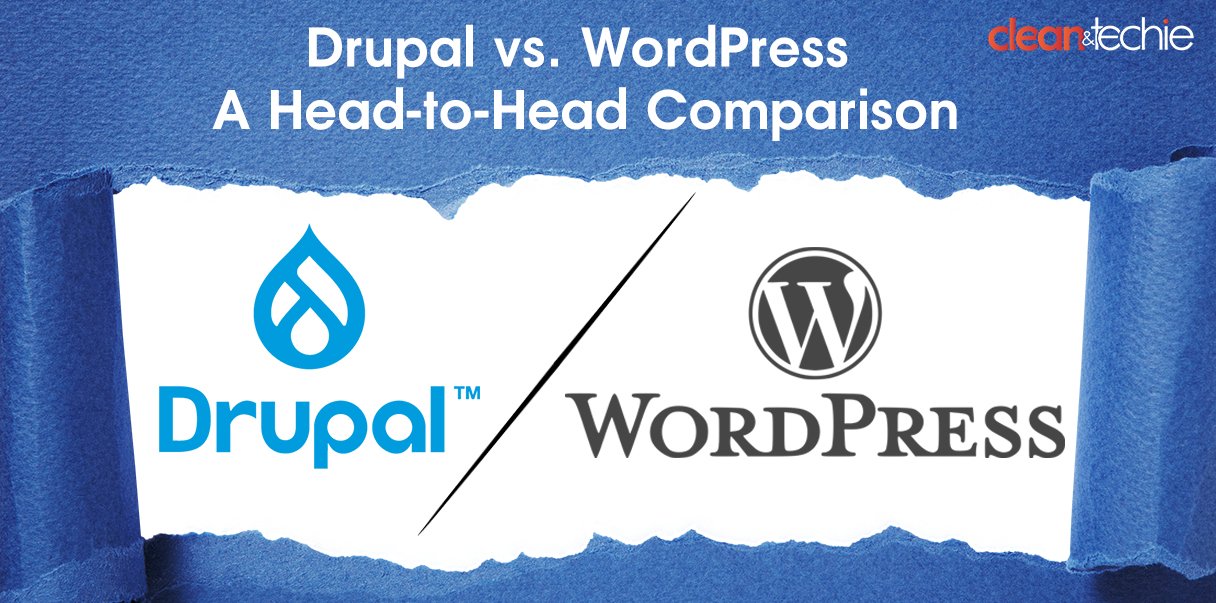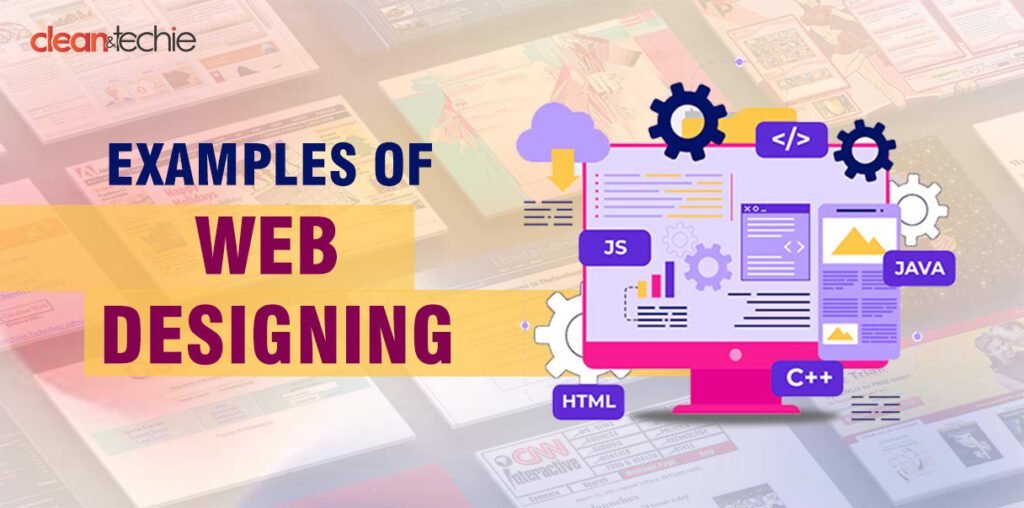Drupal vs. WordPress – what to choose? Let’s look at the top two and most preferred Content Management System (CMS) in today’s digital world.
Choosing the right CMS is crucial for building and managing a successful website. Drupal and WordPress are two of the most popular options, each with its own unique strengths and weaknesses. In this comprehensive comparison, we’ll delve into the key features, benefits, and drawbacks of both platforms to help you make an informed decision.
Drupal: The Powerhouse
Key Features:
Flexibility and Customization:
Drupal’s flexibility and customization capabilities are unparalleled. Its modular architecture allows for a high degree of control over your website’s structure and functionality. This means you can easily add or remove features, create custom content types, and tailor your site to meet specific business requirements.
Drupal’s extensive theming system and API provide endless possibilities for customization, ensuring that your website stands out from the crowd. Whether you need a simple blog or a complex e-commerce platform, Drupal’s flexibility allows you to build exactly what you envision.
Scalability:
Drupal’s scalability is a key feature that makes it ideal for handling high-traffic websites and complex projects. It can easily accommodate growth, whether it’s an increase in website visitors, the addition of new features, or the integration of other systems. Drupal’s architecture is designed to handle large amounts of data and complex workflows efficiently, ensuring that your website remains fast and reliable even as your needs evolve. This scalability is particularly valuable for businesses that anticipate rapid growth or require a platform that can support future expansion.
Security:
Drupal’s robust security features make it a preferred choice for organizations that prioritize data protection.
The platform incorporates a multi-layered security architecture, including regular security updates, built-in authentication mechanisms, and a strong community that actively contributes to identifying and addressing vulnerabilities. Drupal’s security measures help safeguard sensitive information, protect against unauthorized access, and maintain the integrity of your website.
Limitations:
Steep Learning Curve
Drupal, is a powerful CMS; however, it has a steeper learning curve compared to some others. Its complex architecture, extensive feature set, and community-driven development can be overwhelming for beginners. However, with sufficient resources and support, the initial challenges can be overcome, leading to the benefits of a highly customizable and scalable platform.
Requires more technical expertise for customization.
Drupal’s extensive customization options often require a higher level of technical expertise compared to some other CMS platforms. This includes skills in theme development, module creation, configuration management, performance optimization, and security. While this can be a benefit for those with technical backgrounds, it can also present challenges for users who are primarily focused on content creation and management.
WordPress: The People’s Choice
Key Features:
Ease of Use:
WordPress’s ease of use is a key feature that attracts users of all technical levels. WordPress is easy to use and has lots of tools to help you make your website look the way you want without knowing much about programming. The platform’s WYSIWYG (What You See Is What You Get) editor and user-friendly dashboard allow users to easily add content, manage media, and adjust website settings. This accessibility has contributed to WordPress’s popularity as a go-to choice for website creation and management.
Vast Ecosystem:
WordPress’s vast ecosystem is a key feature that makes it highly versatile and adaptable. This ecosystem encompasses a vast array of themes, plugins, and developer tools, allowing users to customize their websites to fit virtually any need or industry. From simple blogs to complex e-commerce stores, WordPress’s ecosystem provides the resources to create and maintain websites of all shapes and sizes. This flexibility and extensibility are major reasons for WordPress’s enduring popularity.
Community Support:
WordPress’s robust community support is a key feature that sets it apart. This vast network of developers, designers, and users provides invaluable assistance through forums, documentation, and tutorials. Whether you’re a beginner seeking setup guidance or an experienced user tackling complex customizations, the community offers a wealth of knowledge and resources to help you succeed with your WordPress projects.
Limitations
Limited Flexibility:
WordPress is highly customizable CMS. Still in some cases it may not be as flexible as Drupal for highly complex or customized websites. Due to its more user-friendly interface and focus on ease of use, WordPress may have limitations when it comes to deeply integrating with other systems or implementing highly specialized features. While it offers a wide range of plugins and themes, these might not always provide the exact level of control or flexibility required for extremely customized projects.
Susceptible to security vulnerabilities:
WordPress, despite its popularity, can be vulnerable to security threats if not updated regularly. Failing to update your WordPress installation leaves it exposed to potential attacks, such as hacking, malware injection, and data breaches. Regular updates are essential to maintain the security and integrity of your WordPress website.
Drupal, though a powerful CMS, has a steeper learning curve compared to some others. Its complex architecture, extensive feature set, and community-driven development can be overwhelming for beginners. However, with sufficient resources and support, the initial challenges can be overcome, leading to the benefits of a highly customizable and scalable platform.
Requires more technical expertise for customization.
Drupal’s extensive customization options often require a higher level of technical expertise compared to some other CMS platforms. This includes skills in theme development, module creation, configuration management, performance optimization, and security. While this can be a benefit for those with technical backgrounds, it can also present challenges for users who are primarily focused on content creation and management.
WordPress: The People’s Choice
Key Features:
Ease of Use:
WordPress’s ease of use is a key feature that attracts users of all technical levels. Its intuitive interface, coupled with a vast array of plugins and themes, makes it simple to create and customize websites without extensive coding knowledge. The platform’s WYSIWYG (What You See Is What You Get) editor, along with its user-friendly dashboard, allows users to easily add content, manage media, and adjust website settings. This accessibility has contributed to WordPress’s immense popularity as a go-to choice for website creation and management. WordPress is definitely a winner here in Drupal vs. WordPress comparison.
Vast Ecosystem:
WordPress’s vast ecosystem is a key feature that makes it highly versatile and adaptable. This ecosystem encompasses a vast array of themes, plugins, and developer tools, allowing users to customize their websites to fit virtually any need or industry. From simple blogs to complex e-commerce stores, WordPress’s ecosystem provides the resources to create and maintain websites of all shapes and sizes. This flexibility and extensibility are major reasons for WordPress’s enduring popularity.
Community Support:
WordPress’s robust community support is a key feature that sets it apart. This vast network of developers, designers, and users provides invaluable assistance through forums, documentation, and tutorials. Whether you’re a beginner seeking setup guidance or an experienced user tackling complex customizations, the community offers a wealth of knowledge and resources to help you succeed with your WordPress projects.
Limitations
Limited Flexibility:
While WordPress is highly customizable, it may not be as flexible as Drupal for highly complex or customized websites. Due to its more user-friendly interface and focus on ease of use, WordPress may have limitations when it comes to deeply integrating with other systems or implementing highly specialized features. While it offers a wide range of plugins and themes, these might not always provide the exact level of control or flexibility required for extremely customized projects.
Susceptible to security vulnerabilities:
WordPress, despite its popularity, can be vulnerable to security threats if not updated regularly. New versions of WordPress often include critical security patches that address known vulnerabilities. Failing to update your WordPress installation leaves it exposed to potential attacks, such as hacking, malware injection, and data breaches. Regular updates are essential to maintain the security and integrity of your WordPress website.
Head-to-Head Comparison
| Feature | Drupal | WordPress |
| Ease of Use | Difficult | Easy |
| Customization | Highly customizable | Customizable, but with limitations |
| Scalability | Excellent | Good |
| Security | Strong | Good, but requires attention |
| Community Support | Strong | Very strong |
Conclusion
In conclusion, the decision on what to choose between Drupal vs. WordPress hinges on your individual requirements and priorities. For those seeking a highly adaptable platform with extensive customization options, Drupal might be the ideal choice. However, if simplicity and a vast community of support are paramount, WordPress could be a better fit.
When making your selection, carefully evaluate your budget, technical capabilities, and future plans. By considering these factors, you can make an informed decision that aligns with your website’s needs and goals.




